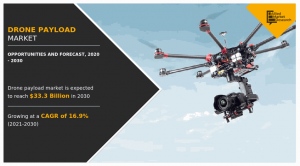The bill, which passed unanimously in the state Senate and had only had one dissenting vote in the House, appears to have been written for Kingsport-based Eastman and other Tennessee companies concerned about unmanned aircraft hovering over their facilities.
The bill was sponsored in the Senate by Jon Lundberg, R-Bristol, and in the House by Bud Hulsey, R-Kingsport.
“It’s good policy and will make our state safer — at least that’s the objective,” Lundberg said in a text message.
Said Hulsey: “Concern has been voiced regarding unintentional breaches of this law. Intent is required. New technology now allows drones to carry a payload. This bill now allows investigation and prosecution from a probable cause basis.”
The state’s Fiscal Review Committee suggested the bill’s fiscal impact would be “not significant” because of an expected insignificant number of prosecutions. There have been “zero state court convictions” under the misdemeanor statute during the past five years, the committee noted.
“There will not be a sufficient number of prosecutions for state or local government to experience any significant increase in revenue or expenditures,” the bill’s fiscal note said.
Drones are increasingly coming to the attention of state policymakers who are attempting to strike a balance between public safety and commercial use, according to the National Conference of State Legislatures (NCSL).
The organization says 41 states have enacted laws addressing unmanned aircraft systems (UAS) and an additional three states have adopted resolutions. Common issues addressed in the legislation include defining what UAS, or drones, are; how they can be used by law enforcement or other state agencies; how they can be used by the general public; and regulations for their use in hunting game.
In June 2016, the Federal Aviation Administration announced a set of regulations for the commercial use of small UAS, which took effect on Aug. 29, 2016. The rules prohibit the operation of a drone over any people not directly involved in its operation, prohibit nighttime use and prohibit attaching any hazardous materials to a drone. However, the rules did not specifically address critical infrastructure and facilities — aside from airports.
A Class C misdemeanor carries a penalty of not greater than 30 days in jail or a fine not to exceed $50, or both. If the bill is signed by the governor, the penalty would move to a Class E felony, which carries a penalty of not less than one year nor more than six years in prison. In addition, the jury may assess a fine not to exceed $3,000.
For more, go to www.capitol.tn.gov. The bill’s number is SB 306.
 Unmanned Aerial Vehicle The latest drone news
Unmanned Aerial Vehicle The latest drone news



